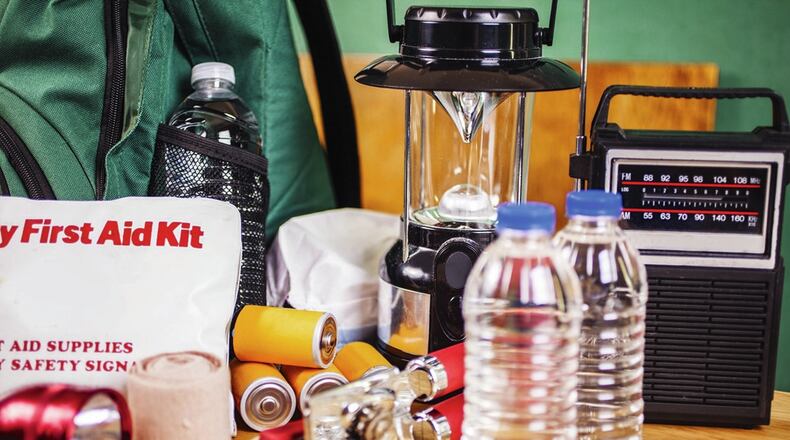“When the storm comes and all of a sudden you have no electricity, or you cannot get to the grocery store, which may also be closed – what’s your plan?” O’Neal said. “Before a bad day gets even worse, think ahead and save money as you use your commissary to help prepare for that emergency event.”
During last year’s hurricane season, there were 18 named storms with six becoming hurricanes and three classified as major hurricanes, such as Hurricane Dorian that was classified as a Category 5. According to the NOAA, there were about 1,500 tornadoes in the United States last year, making 2019 one of the most active tornado seasons on record.
From April through Oct. 31, DeCA’s severe weather promotional package includes discounts on the following items: beef jerky and other assorted meat snacks, soup and chili mixes, canned goods, powdered milk, cereals, batteries, airtight bags, weather-ready flashlights, tape (all-weather, heavy-duty shipping and duct), first aid kits, lighters, matches, lanterns, candles, hand sanitizer and anti-bacterial wipes. Specific items may vary from store to store.
The North Atlantic hurricane season is June 1 to Nov. 30 and covers the North Atlantic Ocean, the Caribbean Sea and the Gulf of Mexico. Tornado season is April to July.
Each year Colorado State University presents its predictions for the hurricane season. The forecast for 2020 calls for 16 named storms, eight of which will be hurricanes, with four of the hurricanes potentially being category 3 or higher. Accuweather predicts 14 to 20 tropical storms, with the number of storms becoming hurricanes ranging from seven to 11.
The spring tornado forecast, according to ustornadoes.com, is calling for an above average season.
Whether it’s Mother Nature or a manmade crisis, emergency preparedness officials encourage prior planning with a disaster supply kit that includes the following items:
• Water – at least one gallon daily, per person (three-day supply for evacuation, two-week supply for home)
• Nonperishable foods – canned meats, fruits, vegetables, dried fruits, nuts, raisins, cereal, crackers, cookies, energy bars, granola, peanut butter, and foods for infants and the elderly (three-day supply for evacuation, two-week supply for home)
• Paper goods – writing paper, paper plates, paper towels and toilet paper
• Writing utensils – pens, pencils (manual pencil sharpeners), markers
• Cooking items – pots, pans, baking sheets, cooking utensils, charcoal, a grill and a manual can opener
• First-aid kit – including bandages, medicines and prescription medications
• Cleaning materials – bleach, sanitizing spray, and hand and laundry soap
• Toiletries – personal hygiene items and moist wipes
• Pet care items – food, water, muzzle, leash, carrier, medications, medical records, and identification and immunization tags
• Lighting accessories – flashlights, batteries, candles and matches
• Battery-powered or hand-crank radio (NOAA Weather Radio, if possible)
• Duct tape, scissors
• Multipurpose tool
• Copies of personal documents (medication list and pertinent medical information, proof of address, deed/lease to home, passports, birth certificates and insurance policies)
• Cell phone with chargers
• Family and emergency contact information
• Extra cash
• Emergency blanket
• Maps of the area
• Blankets or sleeping bags
“Throughout the year we advise our customers to be ready for any emergency, natural or manmade,” O’Neal said. “Even with the COVID-19 outbreak, we still want our customers to be prepared. However, regardless of the situation, we recommend that they calmly purchase what they need and avoid any panic buying to ensure products are available for others in their communities.”
For more information about disaster preparedness, go to https://commissaries.com/our-agency/disaster-preparedness for lists of resources.
About the Author
